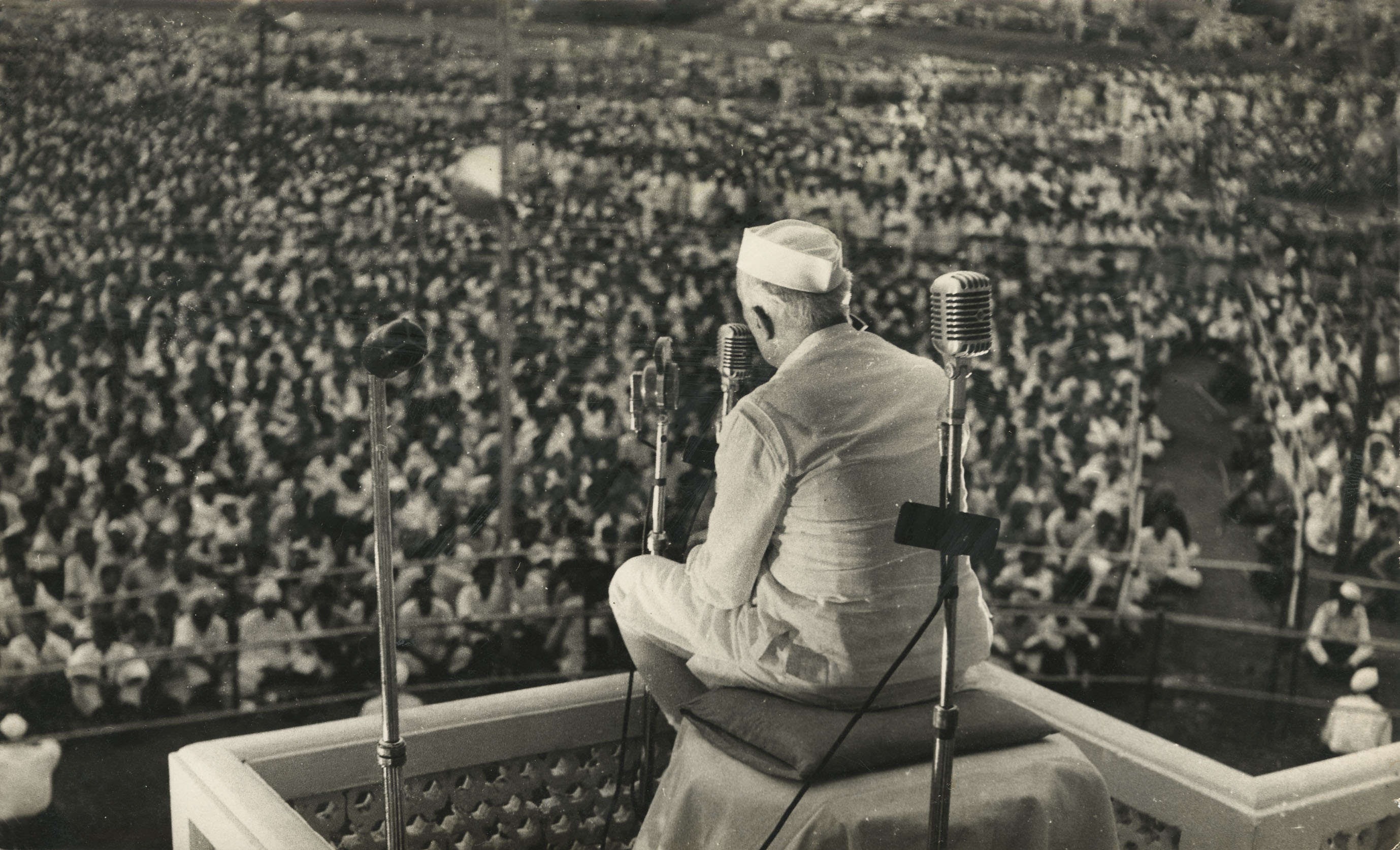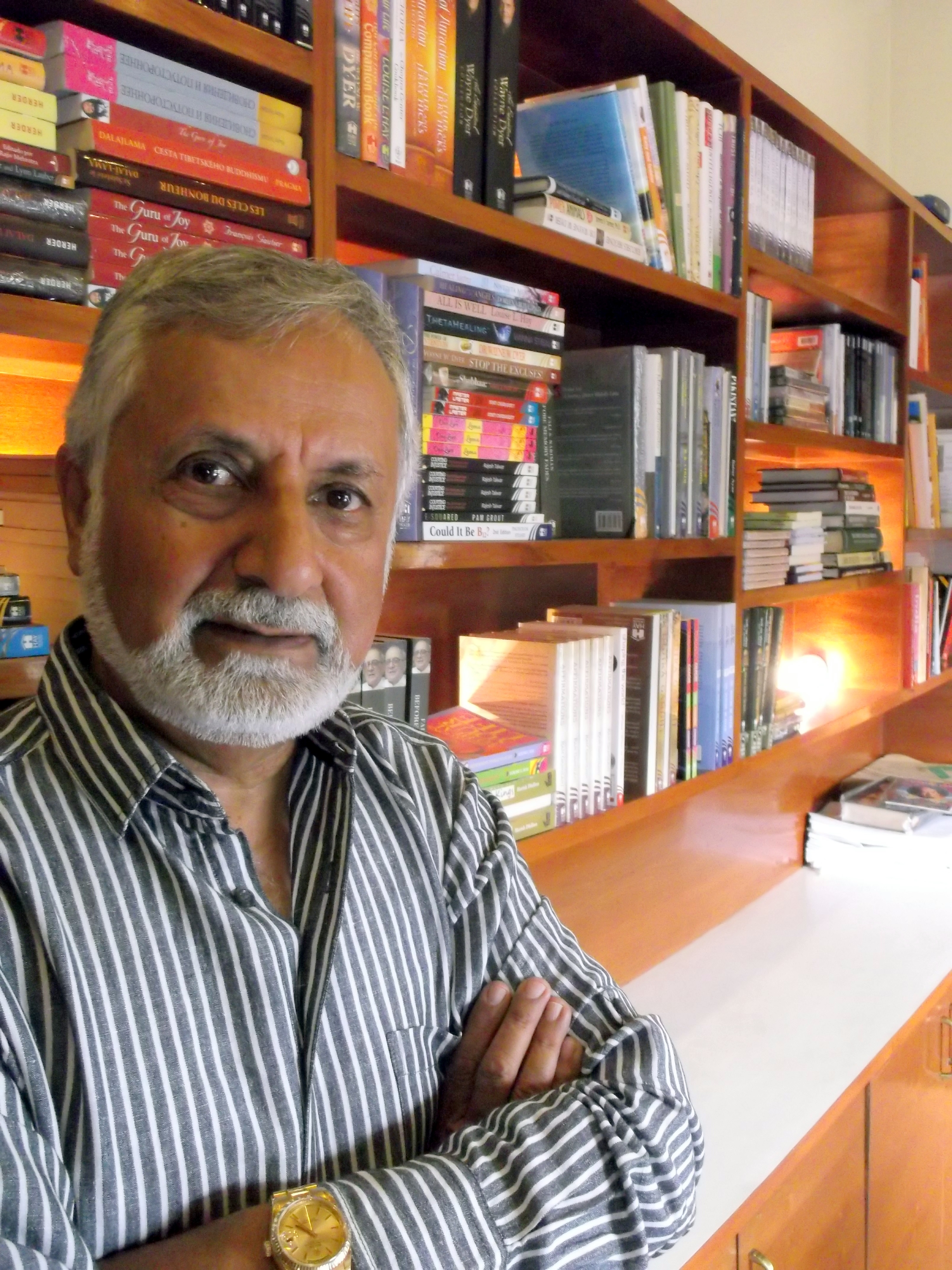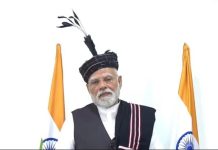
Nehru and his role in building our country’s modern day democratic infrastructure can never be bypassed or overlooked or diluted. He stands tall and will always be remembered!
Sadly and unfortunately, in these recent years, every effort seems to be on by the Right-Wing ruling regime, to dilute the very significance of a statesman like Pandit Jawaharlal Nehru.
In these recent years there have been distortions if not deletion of some very significant historical facts and factors. At times, absolutely blatant moves to change the very basic and core. Together with that, twisted and incorrect versions of the political past. I would call this nothing short of lynching of facts.
Around the autumn of 2016, news-reports had come in of the then Rajasthan government’s plans to remove from the text books the particular chapter on Pandit Jawaharlal Nehru. It was then BJP government in Rajasthan and it had taken some very blatant decisions, which included moves to remove focus on Nehru.
Tell me, why should this generation or future generations sit deprived of details to a statesman like Nehru? After all, ‘Panditji’, as Jawaharlal Nehru was popularly called, stood for democratic values, for the rights and dignity of the minorities and the disadvantaged. Yes, communal attacks did take place even in those years, but they were controlled and there was that guarantee that justice would prevail. He was looked upon as a saviour. That feeling of security was intact because he was himself secular. I’m certain if Nehru was around, it would have been impossible for the Right-Wing brigades to have destroyed the Babri Masjid or for the Gujarat and Delhi pogroms to have taken place, or for the Hindutva brigades to be unleashed all around to terrorize hundreds of innocents.
The fact is that Pandit Jawaharlal Nehru was a leader of the masses. He was respected and loved. I rather too vividly recall, I saw my maternal grandmother, Amna Rahman, cry out in deep anguish when she heard the news of the passing away of the then Prime Minister of India, Pandit Jawaharlal Nehru… I was too young to comprehend the connect between her tears and the death of Nehru, but to this day I recall her words along the strain that Nehru was a saviour of the masses of our country. And much later she had explained that in a democracy it is not important to have a leader from a minority or majority community but a person one could respect and look up to…someone who could take care of the masses, without discriminating along the religious or regional formats.
And years later during my interactions with the Muslim citizens, when the topic of the Partition came up, Muslim families told me that their fathers and grandfathers had opted to stay back in their country Hindoostan, in the hope that leaders of the stature of Pandit Jawaharlal Nehru would be their rulers; with that, sound and just administration would prevail. No, they couldn’t have imagined, not even in their wildest dreams, that a day would come when Right-Wing men will be the political rulers of this land.
 Nehru was known and respected worldwide as a statesman. His stand on Palestinian issue was strong and unchanged. His views and policies vis – a – vis the Middle East made the Arab world tilt towards India. Arab lands and its people were strong allies of India …I recall the receptions hosted in New Delhi by the Iraqi envoys in that sprawling bungalow on Prithvi Raj Road, which was gifted way back in the 1950s, by Pandit Jawaharlal Nehru to the first Iraqi envoy posted to India. And at those receptions, talks would invariablydrift towards Nehru, with the Arab envoys recounting his popularity amongst their people. Mind you, even after his passing away, the Arab governments and people carried that same level of respect for his daughter, Indira Gandhi.
Nehru was known and respected worldwide as a statesman. His stand on Palestinian issue was strong and unchanged. His views and policies vis – a – vis the Middle East made the Arab world tilt towards India. Arab lands and its people were strong allies of India …I recall the receptions hosted in New Delhi by the Iraqi envoys in that sprawling bungalow on Prithvi Raj Road, which was gifted way back in the 1950s, by Pandit Jawaharlal Nehru to the first Iraqi envoy posted to India. And at those receptions, talks would invariablydrift towards Nehru, with the Arab envoys recounting his popularity amongst their people. Mind you, even after his passing away, the Arab governments and people carried that same level of respect for his daughter, Indira Gandhi.
In those earlier years, I had attended press conferences of the Palestinian envoys to India and witnessed the emotions they generated amongst the Indian masses. I do recall that warm hug the Palestinian leader Yasser Arafat gave Indira Gandhi when she hosted an elaborate reception for him in New Delhi. Indira Gandhi’s office had sent invites to even middle- rung Muslim families besides the usual list of the who’s who. Of course, those were the days when there were no security phobias. No hyped statements. That was phase of Government of India’s close bonding with the Arab countries. Well, the foundation of that bonding was laid by none other than Nehru and his policies.
Nehru and his role in building our country’s modern day democratic infrastructure can never be bypassed or overlooked or diluted. He stands tall. He will always be remembered. After all, he was a leader of the mases.
A publisher-author’s unique journey
I’d met Ashok Chopra on several occasions at Khushwant Singh’s home. That was over two decades back. And around the same time I’d done a detailed interview with him, where he spoke of the various ups and downs, turns and twists in his professional life. Of course, webbed and inter-webbed were his absolutely hitting comments on books and volumes and writings, authors and publishers, and his own life and lifestyle.
And now, this summer of 2022, after years I met him once again, at Sanjiv Saraf’s book launch. And as we got talking, it got rather obvious that Chopra has been ongoing in that focused way. Not to be overlooked the fact that he started as a journo and has made a mark as publisher and also as an author. In fact, Chopra is one of those few publishers who is also an author. This combination is somewhat rare and offbeat, at least in our country.
Though he prefers to keep a low profile but I recall the who’s who on the literary circuit had made it a point to focus on him. Khushwant Singh had called him the “pushy publisher”. Shobha De had described him as “a low key individual whose publishing list is middle brow and sensible… ”
And to these comments I can add that he’s absolutely forthright. And focused. So much so that over two decades back, in the late 90s, when he landed up with a heart attack, he didn’t contemplate taking a break, either from the publishing scene, or from the several columns he was then writing. As he had then told me, during the course a detailed interview with me, “Laying down I took to dictating my commentaries on the book scene from the hospital bed. …Coming to my own personal lifestyle, I think it is incorrect say that I have no time for friends. After the heart attack I follow a very disciplined lifestyle, but always appreciate the company of beautiful friends and writers.”
And his passion for the written word has resulted in his writing one book after another. The books authored by him are — Memories of Fire – a novel, The Lovers of Rampore – a novel, A Scrapbook of Memories, Of Love and Other Sorrows…
Holding out, of course, is his role as a publisher. This veteran publisher was earlier associated with several well- known and reputed publishing houses, and had at one point even established his own publishing house. Today he heads Hay House Publishers India.
Leaving you with his this quote from the preface of his book – A Scrapbook of Memories – “Who is a book publisher? …A publisher is a man of many parts who can’t be slotted into a specific category. Perhaps, it may be easier to state what he is not if only to dispel some notions in the popular mind. A publisher is not a scholar or a pure intellectual who lives on ideas alone; he may have his head in the clouds but he is firmly rooted to the ground….”













